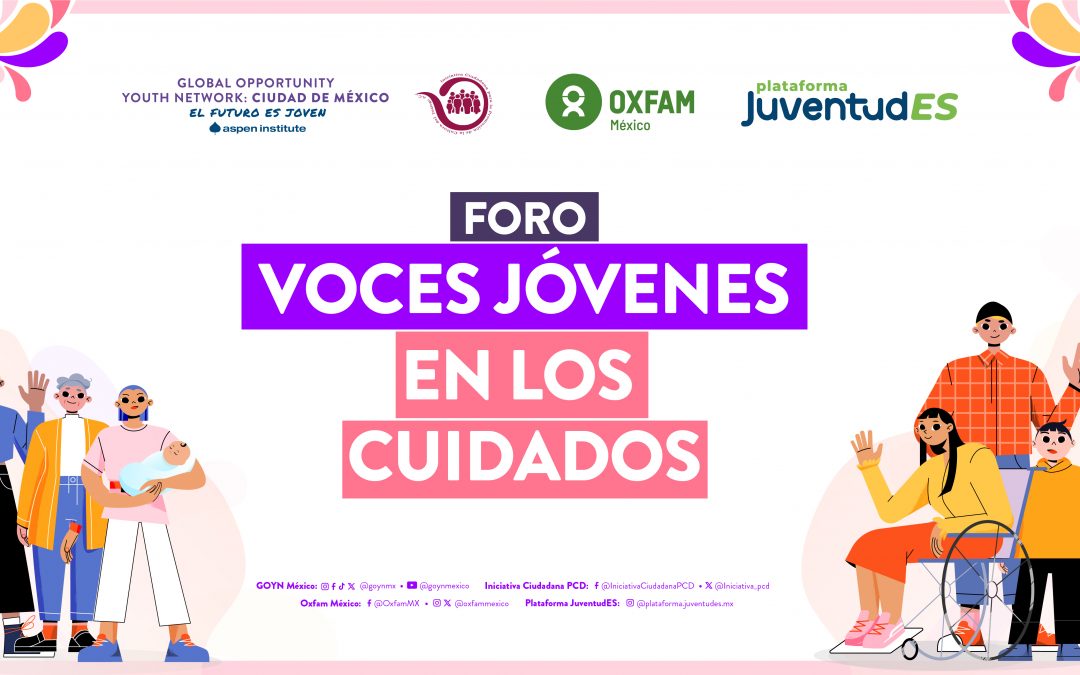By Citizen Initiative for the Promotion
of the Culture of Dialogue, AC

On June 20th at the HUB CLAP GOYN Tacubaya, located in Mexico City, the Young Voices in Care Forum which was attended by 30 young opportunity people (representatives of GAJ GOYN CDMX, Movimiento Jóvenes con Rumbo, Legado Gaia, COMECE, Jamaica Maíz, Colectivo Sentrip, DeudaxClima Mx, Jamaica y Maíz/ RNJA), linked to care work in the Metropolitan Zone of the Valley of Mexico (ZMVM) who dialogued and interacted with representatives of Civil Society organizations and with officials of government institutions that form the Inter-secretarial Table for the Care System of Mexico City.
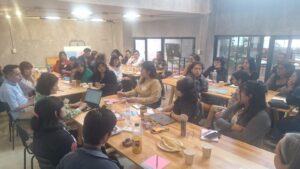
The Forum became a space for meaningful dialogue in which young people expressed, with a natural, jovial yet robust discourse, their concerns and impressions regarding a Care System that makes youth visible in the design and implementation of a City care policy that, from their perspective, should be a mechanism of inclusion for young people with opportunities who have faced systemic barriers that have excluded them since childhood, adolescence, and young adulthood.
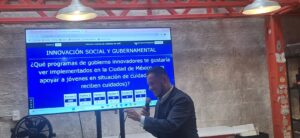
The Forum reaffirmed the commitment to listening to the young participants, eliminating the perception of being viewed as passive subjects and instead viewing them as subjects of rights and strategic agents of change.
The Forum served as a sounding board for reflection on young people's experiences regarding the care provided by youth, as well as the positive implications of being included in building a Comprehensive Care System that serves all people, particularly those sectors that have been excluded, such as youth historically.
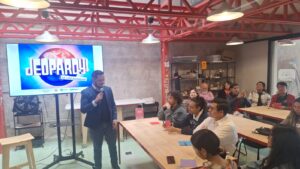
The voices of young people were heard with full knowledge of the facts, based on the premise that their life trajectories and experiences are a praxis that forms part of caregiving, given that they are people who provide care, who are cared for, and who are interested in their self-care.
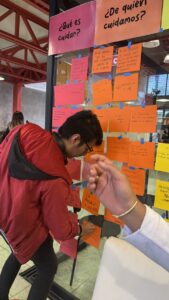
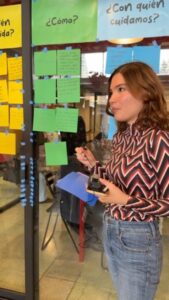
During their interventions, the young people highlighted the importance of promoting shared responsibility for care between the State, the private sector and civil society, as a key component that meets the global mandates to implement the "5 Rs" of care, that is, Recognize, Reduce, Redistribute, Reward and Represent care work, in order to make visible, value and transform the care economy, both paid and unpaid, as well as to achieve gender equality, sexual diversity and social well-being.
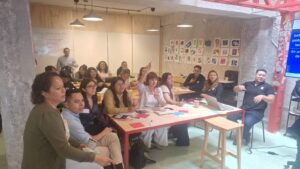
Furthermore, they expressed the importance of proposing a perspective based on collective and community experience as a way of relating to each other, leading to a convergence of interests in a care system in a social environment free from discrimination, violence, economic insecurity, and opportunities for men, women, youth, and people of sexual diversity.
The central demand of the young participants towards state institutions, the private sector, and civil society organizations was to create the conditions and open spaces for dialogue so that their voices and demands could be heard. This would provide them with the opportunity to transcend adult-centrism and promote their own agenda, as outlined at the Forum, consisting of the following points:
-
Recognize the right to care for young people and the specific rights of those who provide care, from a perspective of intersectionality, social justice, and non-discrimination toward historically excluded youth.
-
Include the voices and experiences of young people in all phases of the Public Care System in Mexico City: design, implementation, evaluation, and improvement, with a real impact on their life trajectories.
-
To highlight diverse forms of care that go beyond the traditional gender and family model, including care in LGBTIQ+ communities, neighborhoods, indigenous communities, and youth groups.
-
Promote campaigns that transform the narrative about caregiving: so that it no longer falls solely on women or families, but is assumed as a public, shared, and gender-equitable responsibility. A legal framework focusing on new masculinities is urgently needed.
-
Design strategies that recognize, professionalize, and transition unpaid care work performed by young people into formal employment and education, with decent conditions.
-
Promote pedagogies of care and popular education processes in informal settings to build a community culture of care.
-
Guarantee decent employment in the care economy: with labor rights, safe environments, and freedom from violence and discrimination.
-
Implement shared responsibility measures between the State, businesses, and society, ensuring young caregivers have effective access to social protection systems.
-
Ensure fair conditions for youth-led care cooperatives, including both personal and socio-environmental care.
-
Promote a care agenda with an intergenerational and ecological perspective to address the climate crisis from a community perspective.
-
Establish the foundations for a Comprehensive Care System in the Metropolitan Area of the Valley of Mexico as a collective, fair, and co-responsible commitment.
This space for dialogue allowed young representatives of GAJ GOYN Cdmx, Movimiento Jóvenes con Rumbo, Legado Gaia, COMECE, Jamaica Maíz, Colectivo Sentrip, DeudaxClima Mx, Jamaica y Maíz/ RNJA to underline the value of building intersectoral public policies with a youth, community and human rights perspective, hand in hand with the Citizen Initiative for the Promotion of a Culture of Dialogue in promoting advocacy and dialogue actions that have as their central message that the recognition and effective participation of youth is key to moving towards a more inclusive, co-responsible and fair Mexico City.





